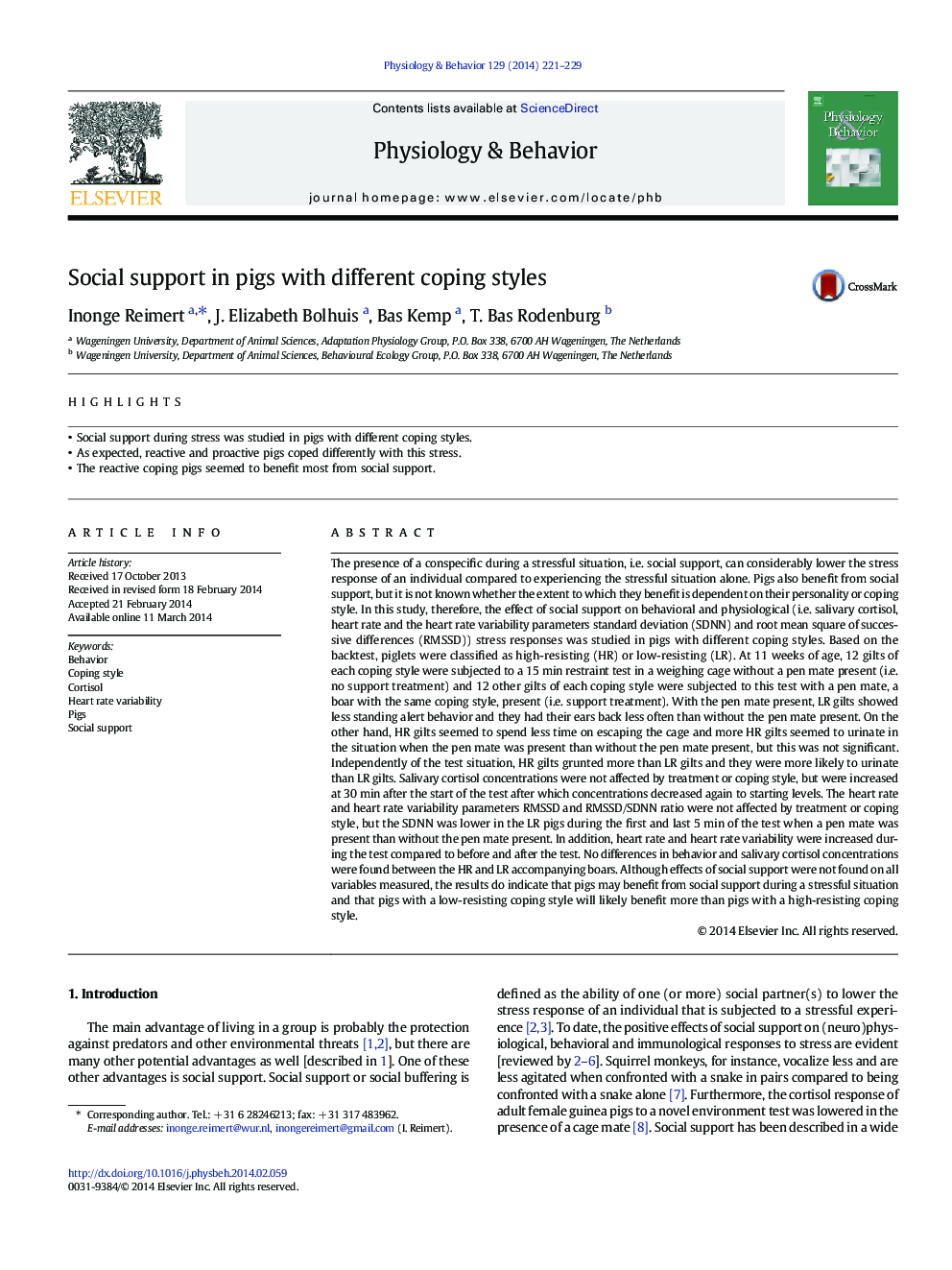| Article ID | Journal | Published Year | Pages | File Type |
|---|---|---|---|---|
| 5924307 | Physiology & Behavior | 2014 | 9 Pages |
â¢Social support during stress was studied in pigs with different coping styles.â¢As expected, reactive and proactive pigs coped differently with this stress.â¢The reactive coping pigs seemed to benefit most from social support.
The presence of a conspecific during a stressful situation, i.e. social support, can considerably lower the stress response of an individual compared to experiencing the stressful situation alone. Pigs also benefit from social support, but it is not known whether the extent to which they benefit is dependent on their personality or coping style. In this study, therefore, the effect of social support on behavioral and physiological (i.e. salivary cortisol, heart rate and the heart rate variability parameters standard deviation (SDNN) and root mean square of successive differences (RMSSD)) stress responses was studied in pigs with different coping styles. Based on the backtest, piglets were classified as high-resisting (HR) or low-resisting (LR). At 11Â weeks of age, 12 gilts of each coping style were subjected to a 15Â min restraint test in a weighing cage without a pen mate present (i.e. no support treatment) and 12 other gilts of each coping style were subjected to this test with a pen mate, a boar with the same coping style, present (i.e. support treatment). With the pen mate present, LR gilts showed less standing alert behavior and they had their ears back less often than without the pen mate present. On the other hand, HR gilts seemed to spend less time on escaping the cage and more HR gilts seemed to urinate in the situation when the pen mate was present than without the pen mate present, but this was not significant. Independently of the test situation, HR gilts grunted more than LR gilts and they were more likely to urinate than LR gilts. Salivary cortisol concentrations were not affected by treatment or coping style, but were increased at 30Â min after the start of the test after which concentrations decreased again to starting levels. The heart rate and heart rate variability parameters RMSSD and RMSSD/SDNN ratio were not affected by treatment or coping style, but the SDNN was lower in the LR pigs during the first and last 5Â min of the test when a pen mate was present than without the pen mate present. In addition, heart rate and heart rate variability were increased during the test compared to before and after the test. No differences in behavior and salivary cortisol concentrations were found between the HR and LR accompanying boars. Although effects of social support were not found on all variables measured, the results do indicate that pigs may benefit from social support during a stressful situation and that pigs with a low-resisting coping style will likely benefit more than pigs with a high-resisting coping style.
